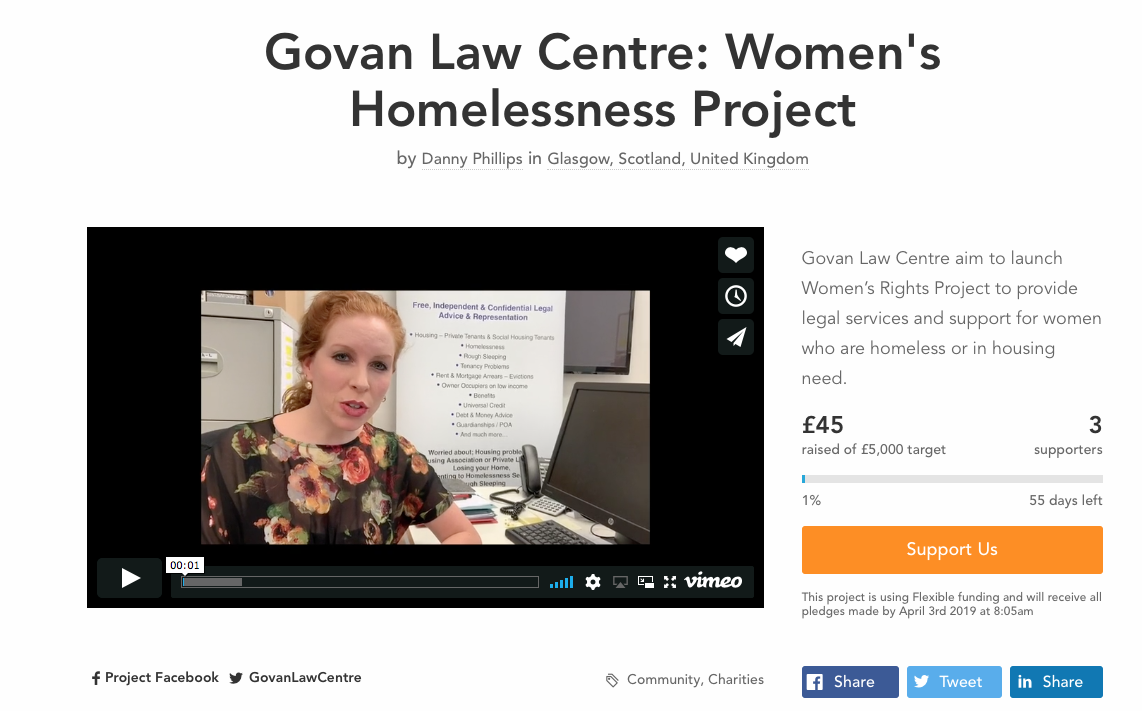 |
Solicitor for Callum,
GLC's Sarah-Jane Kissock |
A child with diabetes has won a landmark ruling which saw the local authority criticised for failing to provide adequate support for his health care needs.
Callum Wyper, aged 7, a pupil at Dykehead Primary School in Shotts, requires support during the school day to manage his diabetes, which includes the administration of insulin. However, due to a lack of provision by the education authority, Callum ended up missing nearly two months of school between December 2012 and January 2013.
North Lanarkshire Council had relied on volunteers from among existing school staff to support pupils with diabetes with their insulin regimes, but when this support was withdrawn and the education authority failed to provide alternative provision, Callum’s mother Julie and step-father James, felt they had no option but to withdraw him from school to ensure his diabetes was safely managed.
The Additional Support Needs Tribunal, which determined the case, decided that it would have been reasonable to recruit support staff whose duties included a responsibility for the administration of insulin. In failing to do so, the Council were found to have unlawfully discriminated against Callum in relation to his disability.
The Equality Act 2010 includes a duty on schools to make “reasonable adjustments” for disabled pupils. Since September 2012, that duty has included a duty to provide auxiliary aids and services, where required. This case which was taken on by the Govan Law Centre is regarded as an important test case and is the first to deal with the thorny issue of administration of medicines in school. The decision clarifies that the duty to assist disabled children with medication and other health care needs lies with the education authority. And as such, it is likely to benefit thousands of children with long-term medical conditions in schools across Scotland.
Callum’s mother Julie said: “We are so glad this is all over. We knew we were right to challenge the school and knowing the Tribunal have backed our case is a huge relief. All we wanted is for Callum to have the same chances at school as any other wee boy and are really pleased that the school and the council must take Callum’s diabetes seriously.”
Solicitor Sarah-Jane Kissock, of Govan Law Centre's Education Law Unit, who represented the family, said “We are very pleased that Callum's family have been vindicated by this decision and that arrangements will now be put in place to make sure that he does not have to miss school again in the future. We would urge Councils across Scotland to review their own policies in light of this decision to ensure that the support needed by children with diabetes is in place and secure. No child should miss out on their right to education as a result of a disability.”
Jane-Claire Judson, National Director of Diabetes UK Scotland who also attended the hearing in support of the family said: “The tribunal has demonstrated that failure to deliver on a school’s duty of care and not having inadequate plans in place to support a child with diabetes will lead to serious discrimination. The detrimental consequences to a child’s education are significant when such discrimination takes place as evidenced by this case. It is not a situation we expect to see in Scotland’s schools.
“Diabetes UK Scotland is pleased to note that the tribunal were very clear in their recommendation that caring for a child who needs insulin in school is a serious issue that needs to be anticipated and planned for.”
“Schools have a legal duty to put in place provision for supporting children with diabetes and for administering insulin. We look forward to seeing the council’s new policy on looking after children with diabetes in schools so that care programmes are developed that ensure teachers, support staff, and parents work together to look after the needs of the child. It is a disappointing situation that a family would have to pursue this through a tribunal process to ensure their child’s right to an education”
The case has also attracted the interest of Scotland’s Commissioner for Children and Young People, Tam Baillie, who has been working on this issue for some time, following concerns raised by children and young people, their parents and practitioners. To take this work forward, he has commissioned and undertaken a series of research reports which have looked at the issues in more detail.
A working group has since been set up by the Commissioner to consider the findings from these reports and look at recent policy, legislative and practice developments, with a view to making formal recommendations to the Scottish Government.

GLC Scottish test case win for school child with diabetes
 Govan
Law Centre is delighted to announce the launch
of an exciting new City Rights Hubs service funded by the Big Lottery Fund, from the Support
and Connect Project. We will be providing
outreach surgeries to Glasgow City Mission, The Marie Trust, Lodging House
Mission Homelessness Day Centres, along with Base 75 and Grand Central Savings
and other organisations.
Govan
Law Centre is delighted to announce the launch
of an exciting new City Rights Hubs service funded by the Big Lottery Fund, from the Support
and Connect Project. We will be providing
outreach surgeries to Glasgow City Mission, The Marie Trust, Lodging House
Mission Homelessness Day Centres, along with Base 75 and Grand Central Savings
and other organisations.
















